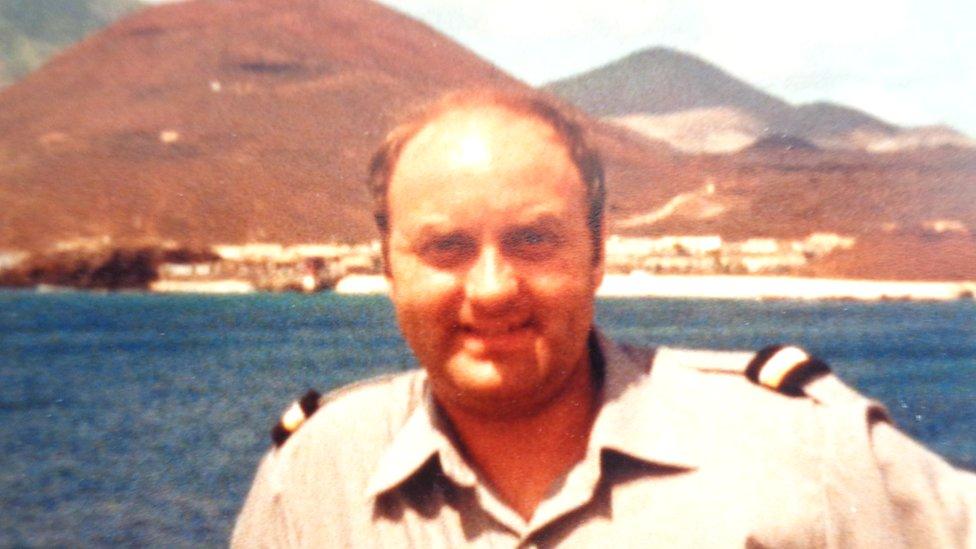Falklands War: Survivor recalls HMS Ardent sinking
- Published

Jon Major was on board HMS Ardent when it was attacked in May 1982
On 21 May 1982 HMS Ardent was lying in Falkland Sound when it came under fire from the Argentine Air Force. Twenty two of the 199 crew members on board were killed and the ship sank the following day, after suffering devastating damage. Forty years on, the BBC has spoken to one of the survivors about his memories of the lethal attack.
As the first wave of Argentine aircraft attacked HMS Ardent, cook Jon Major threw himself to the floor and prayed.
He survived, but 22 of his shipmates, including a close friend, did not and dozens more were injured.
Speaking on the 40th anniversary of the attack, Mr Major, 60, from Hull, said: "Anyone who said they weren't scared would be lying. It was extremely frightening.
"We were all told to take cover when we saw the aircraft coming in.
"We all lay on the floor with our hands on top of our heads. When the first bombs hit, the whole ship shuddered. The first thing I did was pray."
Mr Major, now head verger at Hull Minster, was one of eight cooks onboard the Type 21 frigate. Three members of the close-knit team were killed.
He said: "Cooks were used for what is known as 'defence watch', watching out for incoming aircraft. It was eight hours on, eight hours off.
"When we were off-duty, we tried to get our heads down as best we could, but there was always something to do. We'd often be involved in moving shells and other ammunition around the ship."
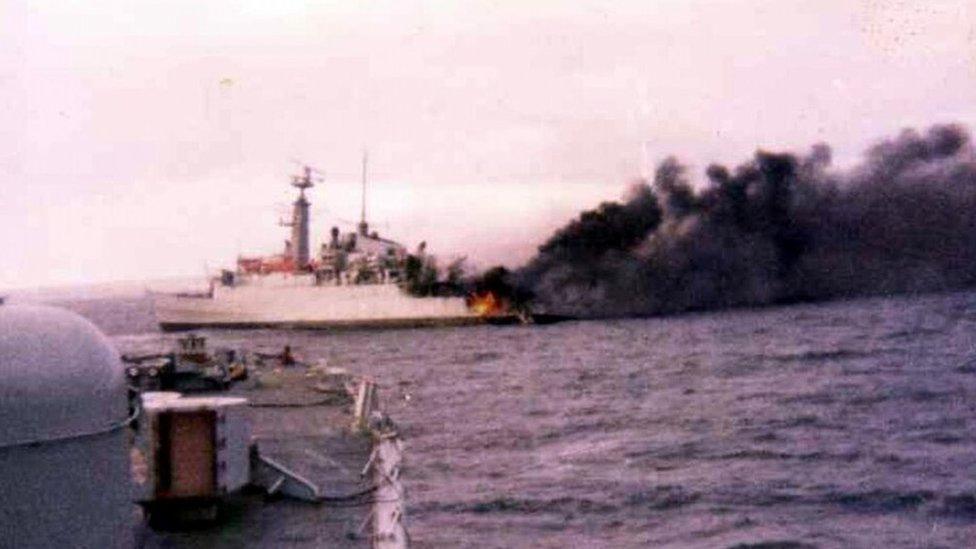
HMS Ardent was attacked by Argentine aircraft in Falkland Sound
Mr Major was also a first-aider, although such was the scale of the damage inflicted in the raids he could do little to help.
"Most of the damage was down aft (the back of the ship)," he said.
"The bombs took out the galley. Because of the smoke, we couldn't get down there."
As the attack continued the captain, Commander Alan West, gave the order to "abandon ship".
According to the official report into the loss of HMS Ardent, external, the ship "succumbed to two determined multi-aircraft attacks, which she had little chance of deflecting, and was seriously damaged".
It added that the damage to the vessel would have been greater had a number of the bombs dropped not failed to explode.
Mr Major said: "To us, it all seemed to happen in seconds."
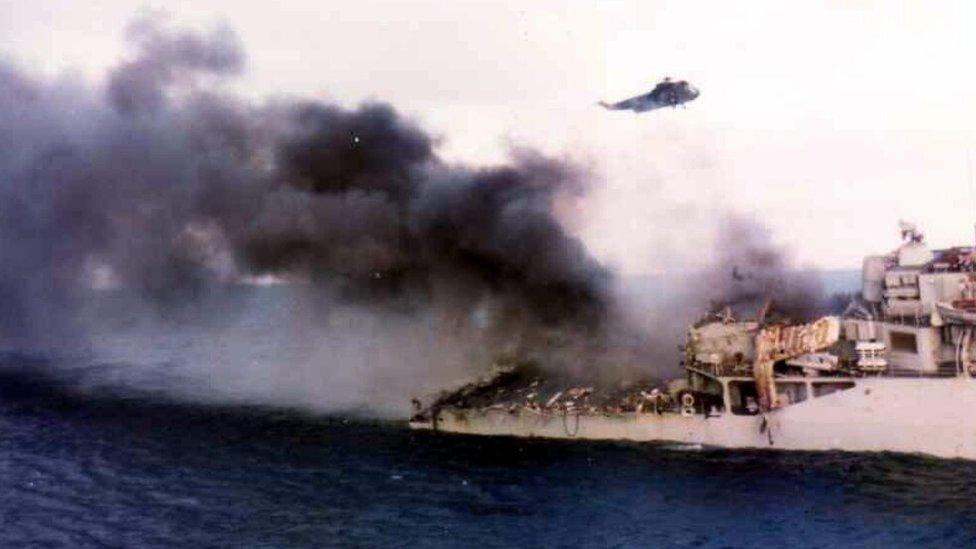
The ship suffered devastating damage in the attack and sank the following day
Survivors of the attack were transferred to HMS Yarmouth and taken to taken to South Georgia, before making the long voyage home where they were greeted by their families.
"My mum and dad came down from Hull," said Mr Major.
"I remember just feeling numb."
After returning to the UK he said he and his fellow crew members were given four weeks' "survivors leave" before being redeployed.
"It was basically a case of 'get on with the rest of your lives,'" he said.
"Back then people didn't really talk about mental health. I think it would have helped people if they had have talked."
Mr Major remained in the Royal Navy for another 20 years before leaving the service.
He said: "I had some great times, but I also had some pretty bad times, like losing 22 shipmates. It's something you don't forget."
In total 255 British military personnel, three islanders and 649 Argentine soldiers died during the 74-day Falklands War.
A service to mark the 40th anniversary of the Falklands conflict will be held at 14:00 BST on19 June at Hull Minster.

Follow BBC Yorkshire on Facebook, external, Twitter, external and Instagram, external. Send your story ideas to yorkslincs.news@bbc.co.uk or send video here.
- Published7 April 2022
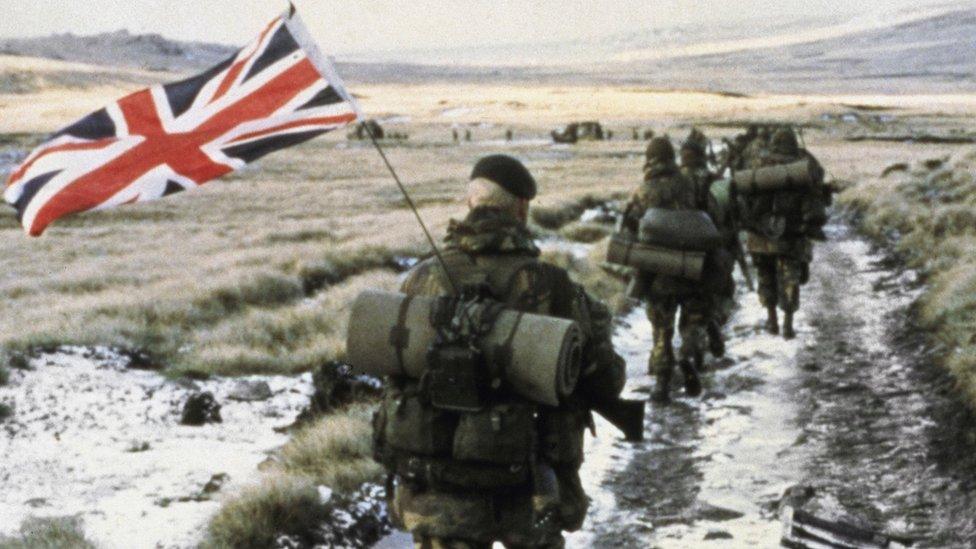
- Published3 April 2022
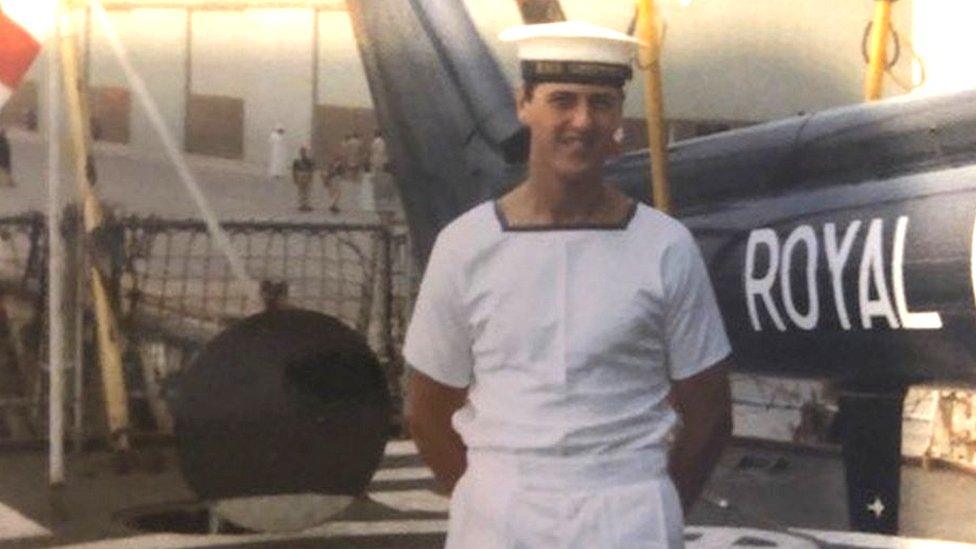
- Published2 April 2022
